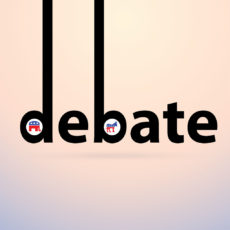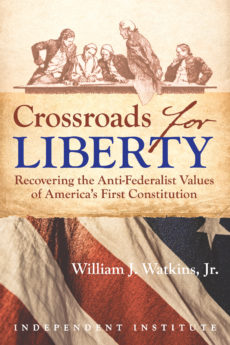Lawrence J. McQuillan • Monday, October 10, 2016 •
The November ballot in Oakland and San Francisco will feature proposals for a soda tax in each city, known as Measure HH and Proposition V, respectively, which would charge soda distributors an additional one cent per ounce of soda they sell in each city (or $2.88 per case). The tax would also apply to the distribution of other sugar-sweetened drinks.
In September, I showed that soda-tax advocates, including Michael Bloomberg, are lying to the public when they say in their television ads and political flyers that “it’s not a grocery tax, it’s a soda tax.” In fact, Oakland and San Francisco grocery buyers will face higher grocery bills as a result of the soda tax. But the lies of tax proponents don’t stop here.
The pro-tax ad below says that voters should take the court’s word, “which just ruled that the soda tax is in fact only a tax on soda.” But this isn’t what the court said.
The court case referenced in the ad is Coffey v. Simmons, and here’s what the presiding official, the Honorable Thomas A. Rasch, commissioner of the Superior Court of Alameda County, actually said:
To state the issue [that the proposed tax would be imposed on local grocers because the distributors would pass the tax through to the local grocers who would then pass the tax on to the consumers] is to recognize the obvious that local grocers and other retailers will likely pass the tax through the chain of distribution to the ultimate consumer.
Commissioner Rasch says it’s obvious that grocery consumers will pay for the tax. As I explain in my earlier commentary, the tax is imposed on soda distributors (the tax’s imposition), but the burden of the tax (the tax’s incidence) will fall on grocery buyers because distributors will pass the soda tax on to grocers who, in turn, will pass the tax on to their retail customers by increasing the retail price of any product or products they choose in their store. Commissioner Rasch, to his considerable credit, understands this.
The soda tax is also a regressive tax, meaning it would harm lower-income families more than higher-income families because poorer households already spend a greater portion of their budgets on groceries. Bernie Sanders understands this and thus opposes soda taxes (see “A Soda Tax Would Hurt Philly’s Low-Income Families,” Philadelphia Magazine, April 24, 2016).
Despite lies by soda-tax advocates, the truth is that the soda tax is a discriminatory tax that unjustly harms lower-income and minority families most by increasing grocery bills. The soda tax is socially unjust and discriminatory.
 Watching the presidential debates is like watching the aftermath of an automobile accident. You’ve all seen it: people holding up traffic as they gawk at the wreckage, trying to get a glimpse of someone else’s misfortune. The presidential debates hold the same fascinating horror, except that the gawkers share in the misfortune.
Watching the presidential debates is like watching the aftermath of an automobile accident. You’ve all seen it: people holding up traffic as they gawk at the wreckage, trying to get a glimpse of someone else’s misfortune. The presidential debates hold the same fascinating horror, except that the gawkers share in the misfortune.
 A solution to expensive patented medicines is generic competitors. The United States has struck a pretty good balance between innovation and low prices through the Hatch-Waxman (1984) Act, which specified patent terms for newly invented medicines, and a pathway for generic competitors to enter the market after a period.
A solution to expensive patented medicines is generic competitors. The United States has struck a pretty good balance between innovation and low prices through the Hatch-Waxman (1984) Act, which specified patent terms for newly invented medicines, and a pathway for generic competitors to enter the market after a period. A new
A new  The natural answer, the one most people would give, is that trade restrictions hurt foreigners who want to sell their goods and services to Americans. After all, politicians, including the two major-party candidates now seeking election to the presidency, tell us every day that they will demand various sorts of concessions from or impose various sorts of penalties on—that is, hurt—the foreigners, especially the Chinese exporters, who wish to bring their goods into the USA for sale. And surely it is the case that such hurt would be one result of the higher tariffs, import restrictions, currency revaluations, and other politically popular actions now being bandied about by candidates and the public.
The natural answer, the one most people would give, is that trade restrictions hurt foreigners who want to sell their goods and services to Americans. After all, politicians, including the two major-party candidates now seeking election to the presidency, tell us every day that they will demand various sorts of concessions from or impose various sorts of penalties on—that is, hurt—the foreigners, especially the Chinese exporters, who wish to bring their goods into the USA for sale. And surely it is the case that such hurt would be one result of the higher tariffs, import restrictions, currency revaluations, and other politically popular actions now being bandied about by candidates and the public. Parts of the southern United States were hit particular hard by hurricane Matthew last week. Between the wind and the rain, flooding and power outages took place from Florida up through the Carolinas.
Parts of the southern United States were hit particular hard by hurricane Matthew last week. Between the wind and the rain, flooding and power outages took place from Florida up through the Carolinas.
 A few days ago, it was revealed that in 1995 Donald Trump declared a $916 million loss on his tax returns. According to
A few days ago, it was revealed that in 1995 Donald Trump declared a $916 million loss on his tax returns. According to  I normally walk my dogs twice each day along the beach, which gives me an opportunity to ponder, among other things, issues in constitutional political economy. My late friend James Buchanan, one of the deepest thinkers in political economy during the past century, led the development of
I normally walk my dogs twice each day along the beach, which gives me an opportunity to ponder, among other things, issues in constitutional political economy. My late friend James Buchanan, one of the deepest thinkers in political economy during the past century, led the development of 




